Food supply across borders
The horticulture sector is a vital component of our economies, producing crops for our food supply. The challenges in the horticulture sector, are diverse and include low wages, unsafe working conditions, inequality, lack of legal protection, and exploitation. Many workers hold vulnerable, informal positions, often without stable employment. This makes it especially difficult for them to stand up for their rights.
Work in horticulture is physically demanding and often involves the use of pesticides. This type of work requires proper protective equipment and safety measures for the workers.
Global food security should not come at the cost of violating basic human rights, such as health, safety, and a living wage.
In the Netherlands, much has been regulated in this area, and there is a wealth of knowledge and experience. This is crucial not only for the safety of workers and environmental protection but also for our food safety.
Missed our webinar on #WorldFoodDay 16th October ?
Promoting Decent Work in the Horticulture Sector in Senegal
A presentation and discussion on our new research, conclusions and follow-up, watch now and check the key findings below
Learn more on this page about decent work in horticulture especially in Senegal, and our approach. Use the yellow index for quick access.

As part of the Dutch Ministry of Foreign Affairs' aid and trade initiative, Senegal has been identified as a priority “combi” country. The horticulture sector has been chosen as a key area for fostering sustainable development, fair working conditions, and improving food security.
Economic and social impact of decent work in Senegal's horticultural sector
In Senegal horticulture not only is a vital export commoditie, it also supports the livelihoods of 0,5 million workers. Key crops such as onions, tomatoes, green beans, mangoes, and cashew nuts are predominantly grown in three major regions: the Senegal River Valley, Casamance, and Niayes. Collectively, these five sub-sectors represent 40% of Senegal’s horticultural production. Improving decent work conditions in these subsectors will create a significant economic and social impact, benefitting workers, their families, and communities.
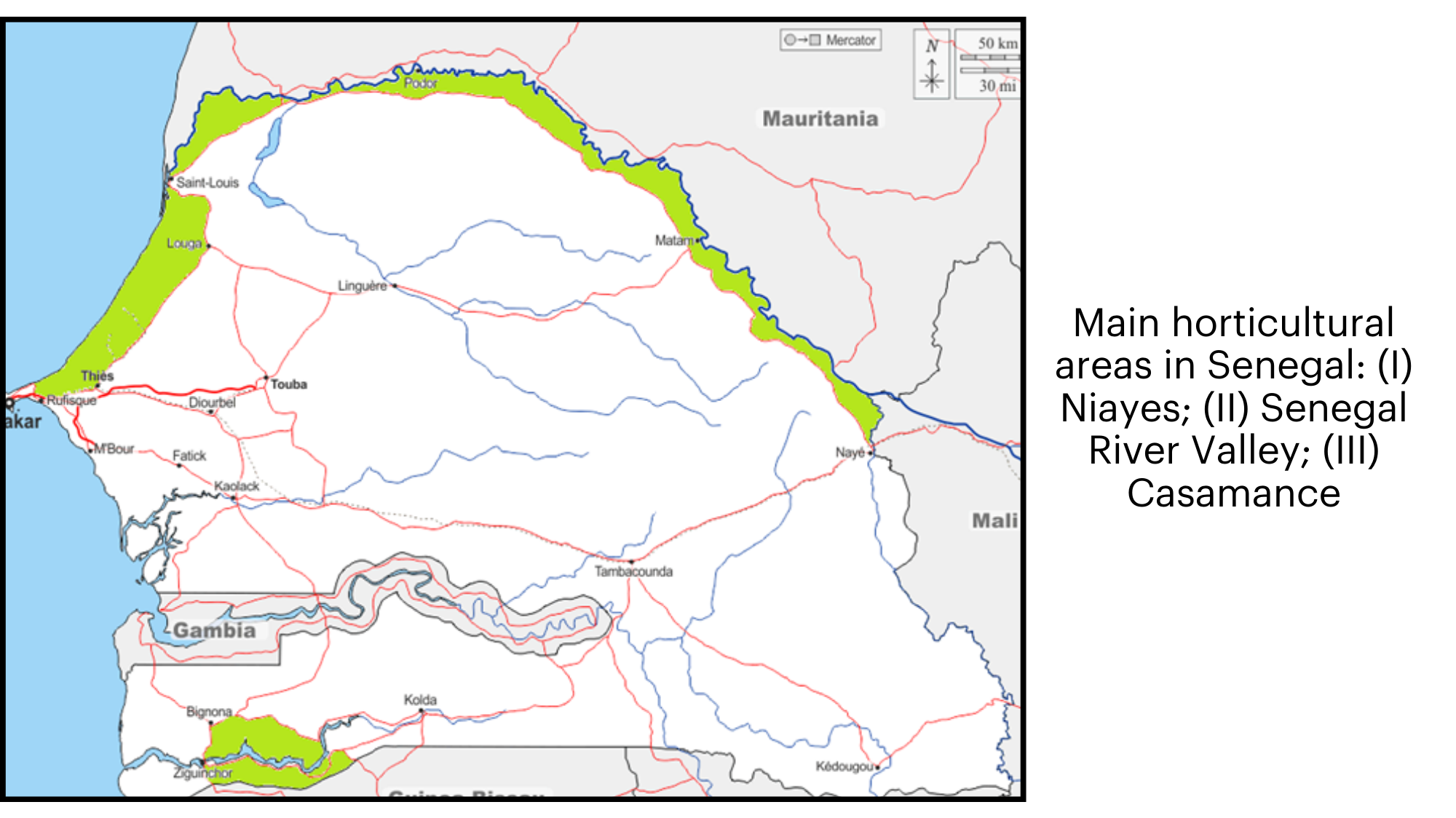
What's happening
Research
To contribute to these goals, CNV Internationaal, MEYS Emerging Markets Research, and Nafifu SARL conducted a qualitative study on decent work in Senegal's horticultural sub-sectors.
- Onions
- Tomatoes
- Green beans
- Mangoes
- Cashews
It analyzes working conditions and proposes actions to improve decent work practices in these sub-sectors, which represent 40% of the national horticultural production.
Downloads
Methodology
The study was conducted between June and September 2024, using:
- Semi-structured interviews with experts and key stakeholders
- Field surveys conducted in three major horticultural areas with 883 participants
- Document review
The participants include 18 input suppliers, 252 producers, traders, and workers in SMEs and large agricultural operations.
What is Decent Work?
According to the International Labour Organisation ILO, decent work involves:
- Fair income
- Security and social protection
- Opportunities for personal development
- Social inclusion and equal opportunities
Despite the existence of a national labor code and a decent work program, the horticultural sector in Senegal still faces many challenges in meeting these criteria.
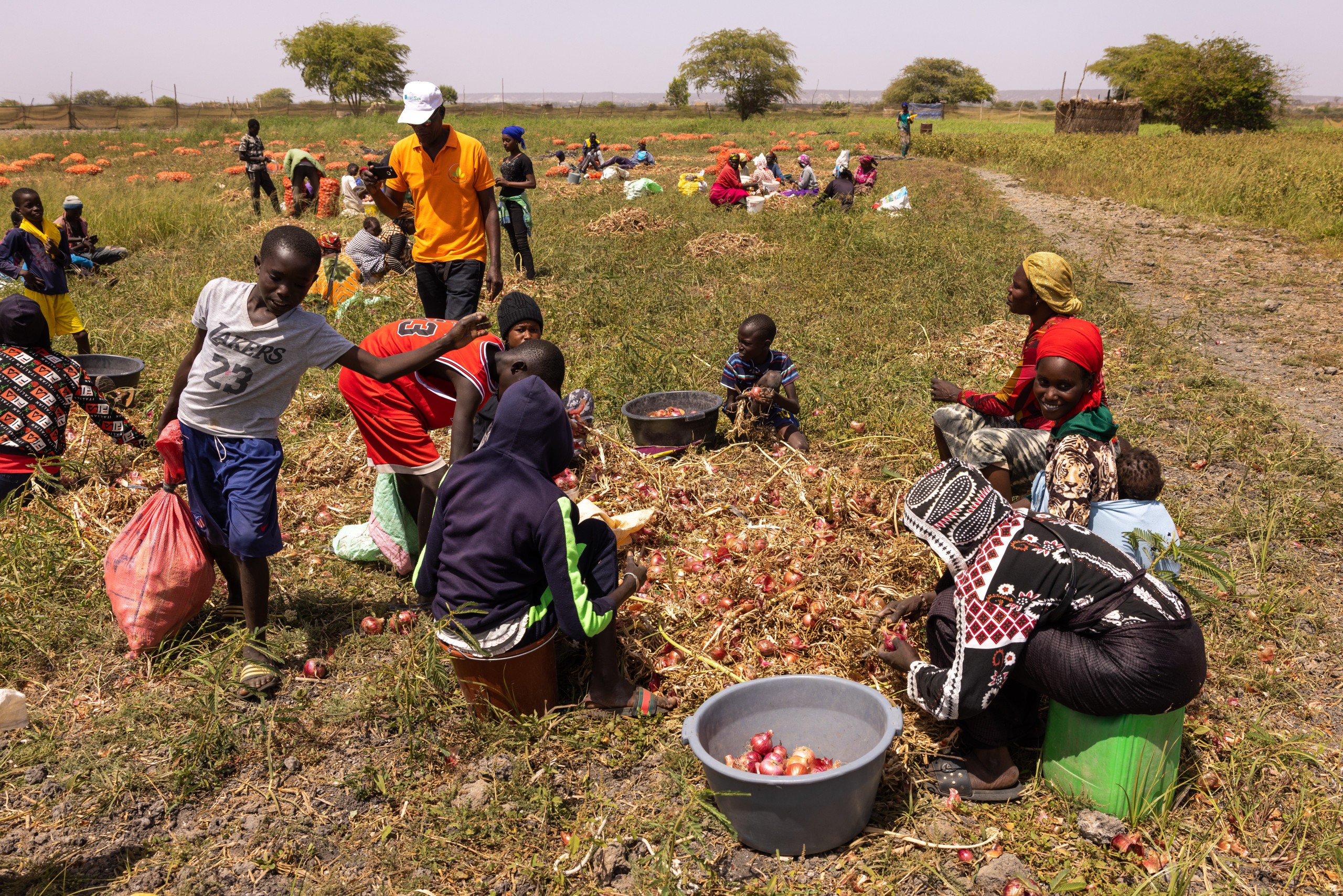
Key Research Findings
Absence of employment contracts and low wages
30% of large farms do not offer written contracts
- 91% of traders do not provide any work contracts
- Wages below the legal minimum (SMIG) are common, especially in agricultural households where 70% of employers do not comply with the agricultural minimum wage (SMAG)

Lack of social security
36% of large farms are not registered with CSS or IPRES for retirement and accident protection
- Few employers respect paid annual leave, especially among traders (88% non-compliance)
Insufficient and unsafe working conditions
- 50% of workers are dissatisfied with their participation in decision-making
- 80% of employees consider their social security insufficient
- 33% of workers report having been victims of harassment or discrimination at work
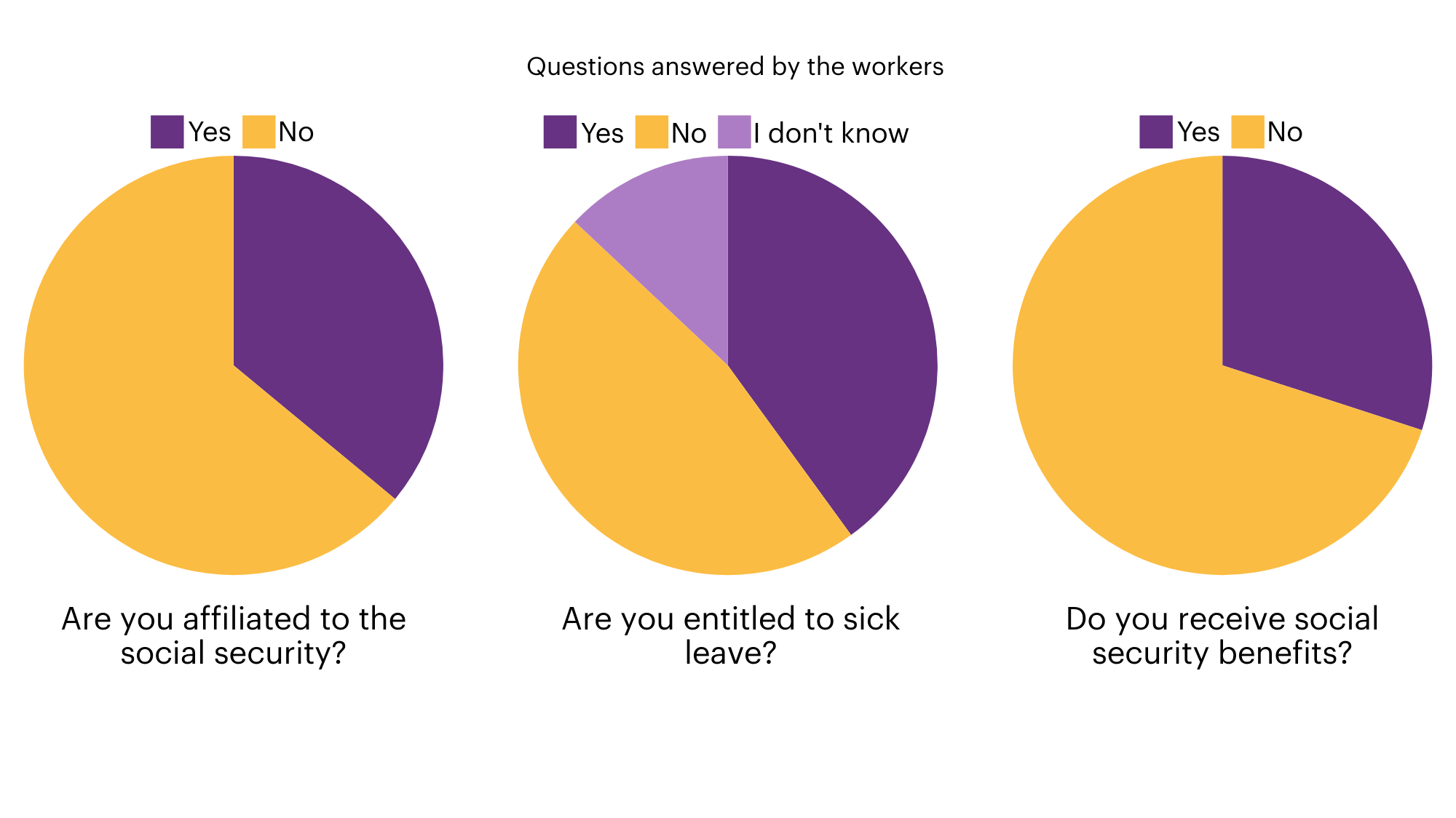
Lack of social dialogue
- Low union presence in SMEs and large farms
- Active unions such as CNTS and UDTS have few nembers in horticulture. Its difficult to organise informal workers in the horticulture sector, limiting workers' ability to defend their rights
Conclusion and recommendations
The study concludes that decent work is nearly non-existent in these five key sub-sectors. To ensure the well-being of the 0.5 million workers employed in horticulture, it is essential to:
- Improve working conditions
- Strengthen social dialogue between employers, unions, civil society, and development partners
A collaborative approach is essential to promote decent work and sustainable development in this supply chain, which is vital to Senegal's economy.
Video: Promoting Decent Work in the Horticulture Sector in Senegal
International regulations and our approach
Internationally, the OECD guidelines on responsible business conduct set the standard. The EU’s new CSRD and CSDDD regulations are built upon these principles, and the advantage of these regulations is that they create a level playing field from which everyone can benefit. The CSRD requires organisations to report on their impact on people and the environment, while the CSDDD compels companies to take concrete action to mitigate negative impacts.
Level playing field and clarity thanks to new HRDD legislations
For businesses, European HRDD regulations will provide much-needed clarity. In both environmental and social matters, companies are expected to act diligently and responsibly, particularly regarding environmental and human rights concerns. Some businesses already have experience in this area, giving them a competitive edge, while others are still working out how to implement these practices effectively within their supply chains.
Addressing and preventing labour rights violations requires the involvement of all actors across the supply chain. Fortunately, progress is already being made in this regard, and CNV Internationaal has experience in this field.
The costs associated with reducing and preventing labour rights violations should be embedded throughout the supply chain. The market should adopt a 'preferential' approach, rewarding companies that are actively working towards improvements.

The role of CNV Internationaal
Trade unions in the Netherlands have experience working with businesses and governments to address labour issues and develop solutions. CNV Internationaal also operates at the international level, focusing on improving the situation for workers and promoting responsible business practices in the supply chains of the horticulture, palm oil, and sugarcane sectors.
We do this through a supply chain approach, collaborating closely with local union partners who, like CNV Internationaal, take a constructive stance. These partners have deep knowledge of the local context and extensive experience working with vulnerable groups of workers, particularly women and young newcomers to the labour market.
Step by step working towards solutions
With our experience across sectors such as palm oil, sugarcane, textiles, and mining, combined with our networks in Asia, Africa, and Latin America, we are well-positioned to assist Dutch companies in meeting the requirements of HRDD legislations.
Through social dialogue, we bring together relevant stakeholders to establish agreements on improving working conditions and ensuring fair wages. Quality working conditions enhance productivity and foster a sense of peace and well-being in the workplace.
This is a gradual, step-by-step process of collaboratively working towards improvements. By addressing these challenges together, we unlock opportunities for a win-win approach. Ultimately, this benefits everyone involved.
Learn more about other food supply chains we are active in


Intereste to explore collaboration?
If you're a company or other stakeholder in the sector active in Senegal, Mali, Benin or Cote d'Ivoire and wish to learn more. Don't hesitate to contact us:
Francisca van Dusseldorp, regional coordinator Africa f.vandusseldorp@cnv.nl
Marjolein Groenewegen, programme manager Africa, m.groenewegen@cnv.nl